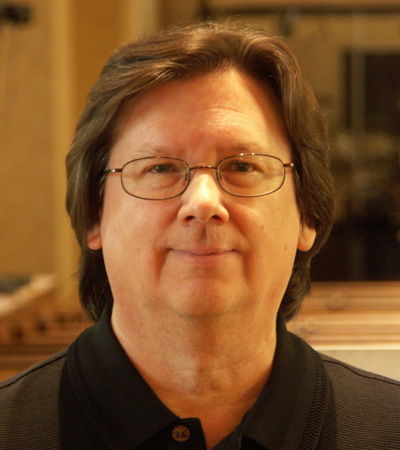by Curt Taipale
That probably sounds like a silly question to ask, until you start talking with the worship teams and tech crews at a lot of churches. Then you begin to realize that in fact there are some different perspectives floating around out there.
From my perspective as an audio engineer, a soundcheck is not the process of setting up the microphones or making sure that everything is working properly, and it is not a time for the worship team to rehearse their music for the day. A soundcheck is what happens in between those two processes.
A soundcheck is a time of mutual benefit to the tech crew, musicians and singers. You could actually divide it up into three parts – the technical phase, the vocalist/player phase, and the worship team phase.
In the first part, the sound team refines the gain structure and the sound character of each individual instrument and vocal coming into his console. The process allows the mixer to work out any last moment problems that might occur with the gear, like a mic cable that starts to fail, or a dirty connection in a patchbay that finally shows up. And you thought it only happened to you!
Once the console settings are at a good starting point from which to build the FOH mix, the musicians can begin to ask for refinements in their monitor mixes. With the players content with their monitor mixes, the vocalists can start to refine what they’re hearing as well.
What I call the worship team phase involves everyone. It may help to understand that I consider the tech crew, the musicians and the vocalists all to be equal members of the worship team. Each member is offering up their gifts to God, and it only comes together when everyone in the team gives it their all for Him.
This final part of the soundcheck allows the musicians and vocalists to start rehearsing their songs while the tech crew begins to rehearse their mix. In every rehearsal, the vocalists make subtle adjustments to how they’re going to sing their parts, even changing who takes which harmony part, the keyboard player locks in on which chord inversions they plan to use, the guitarist works out how he’s going to grab his chords and begins to add his own stylistic nuances to the sound, and so on. They have a right to know that all of the work they’re doing so carefully will be heard in a balanced musical mix for the congregation.
What many musicians and vocalists don’t understand is that there are a great many subtle adjustments that the tech crew can do as well with the mix that will accent and enhance what the musicians and vocalists are doing on stage. That cool shank guitar line should be heard in proper perspective in the mix. That one bass guitar riff that only happens once coming out of the bridge needs to be heard. Adding a slight flanging effect to the backing vocals only during the chorus can really make the parts jump out. Fitting a single-repeat echo on the worship leader’s part in just a couple parts of the song, or even just a couple of words in the song, works incredibly well if it’s placed right in the same tempo as the song.
The only way that the sound mixer is going to know that those parts exist, understand how those refinements can and should fit in his mix, and be prepared to pull off whatever is necessary to make it work each time the song is played requires is through careful listening and time – lots of it. There have been many times when the players and singers decide they’re confident that they know the song and move on to the next or decide to take a break, and I’m left there hanging, only partly done creating the sound that I was going for. How selfish of me, eh!?! That depends on your perspective. If only they knew how they just shortchanged themselves, the congregation, and even me.
Understand that this is a two way street. I can’t expect someone playing an electronic keyboard, for example, to play for me so I can work with the FOH sound without them being able to hear some of that keyboard sound in the monitors. Yet I can’t properly set the gain structure for that instrument without having them play the instrument. A question I often get asked is which do I set first – the FOH mix or the monitors? And the answer, of course, is both. The problem is when the player expects the sound of their keyboard to be perfect in level and sound character from the first note. Perhaps shock therapy would work in these cases!?!
Building the Mix
If the worship music style includes a rhythm section or a number of instruments, then the soundcheck allows the mixer to start to build building their mix. Each sound tech may use a different approach to building the mix. Personally, I like to build the mix in blocks, working with one input at a time. In other words, I’ll start with the kick drum, then the snare, check to see how they work together, then add the rack toms and floor tom, then finally include the hi-hat and cymbals. Then I’ll work with the bass guitar sound, check it with the kick and snare, and then check how the bass guitar and the full drum kit fit together.
Once I’m confident that I have a solid foundation upon which to build the mix, then I’ll move to the keys, guitars, other instruments, then backing vocals and finally the worship leader. My process can frustrate a worship team that wants to hear something consistent on stage during the soundcheck because I’m frequently pulling things up and down in the FOH mix as I work my way through it. While that doesn’t affect their monitor mix, they can certainly hear the FOH changes from their location on stage, and those changes can be disconcerting. But from my perspective, the soundcheck is mine. It’s my time to use as needed. It’s the period when my needs to get the FOH mix together have to come first, and I have to be in control of how we use that time.
That may sound selfish, but it’s a necessary component if we’re going to achieve technical excellence together. Once we enter the rehearsal time then the playing field levels out and the needs of the tech crew and the players/vocalists are equal and should be worked out together.
Another approach voiced by several seasoned sound mixers is philosophically the opposite of my approach. They prefer to keep all of the instruments and vocals up in the mix at all times so that any EQ choices or level changes can constantly be evaluated as a whole rather than individually. That’s a tremendously valid point, and I would simply say go with what works for you.
I can easily see the players and singers jumping to the defense of this second approach since it supports their desire for more consistency during the soundcheck. However the reality is that neither approach will necessarily deliver a better end result than the other. On top of that, those on stage aren’t the ones mixing, and they aren’t the ones who will catch the heat if things don’t sound great, so each individual sound mixer has to use the approach of building a mix that works best for them.
I will say that I have found myself in recent days virtually forced by exceedingly short soundcheck times to keep the full mix up and learn how to achieve the results I’m looking for quickly and accurately without having the luxury of isolating individual parts, at least not to the degree that I’m used to doing.
The End Result
The soundcheck is a handshake, if you will, between the tech crew and the worship team. The end result should be one of joyful abandon during a worship service. Yes, it’s okay for the tech crew to enjoy the worship service as much as the worship team. I can’t exactly throw my head back, close my eyes and worship God like the vocalists might be able to do. If I do, I’ll likely miss a cue or create a problem. But that doesn’t mean that I can’t have fun and enjoy the process.
The bottom line of this whole article was simply to help you engage a conversation between the worship team and tech team to help y’all come to an understanding and agreement about the objectives of a soundcheck. I’ve witnessed worship teams say things to tech crew volunteers and production staff that, shall we say, they wouldn’t have said if Jesus were standing there. I have been around worship teams and tech teams alike saying stuff about the other “side” that they shouldn’t have been saying.
When you get down to the bottom of all that strife, it generally turns out to be a lack of understanding. Some music pastors and many musicians and vocalists think of the tech crew as subservient to them. Unfortunately, some tech crew leaders think more highly of their efforts than they should as well. The reality is that every one of them desperately needs to come to the understanding that they’re all in this together, that each musician, singer, worship leader, sound tech, lighting tech, video graphics tech, and so on are all equal members of the same team, striving together toward a common goal.
Why am I so hot on this topic? Because through our ChurchSoundcheck discussion group and through my work as a consultant to churches, we hear about this kind of strife happening every week. We often find ourselves counseling or at least consoling some embattled tech guy, music pastor or player. We even hear from musicians who are tired of tech guys beating up on the players and singers.
It doesn’t have to be that way. Our time on this planet may be short. Jesus may be back sooner than we think. I would suggest to you that it’s way past time that we lay down our petty personal goals and get on with the task that Jesus has called us to. Let’s learn to enjoy our time of worshipping together. It’s an honor to serve the needs of technical excellence for great players, singers and music pastors. It’s no fun when those individuals are full of themselves and acting like idiots. I’ve worked with both.
I’ve looked and can’t find anywhere in the Word where it says that we’re supposed to be at odds with one another during a worship service. So, let’s choose to worship God together and get on with the task at hand.
Copyright 2019. Curt Taipale, LLC. All Rights Reserved.


